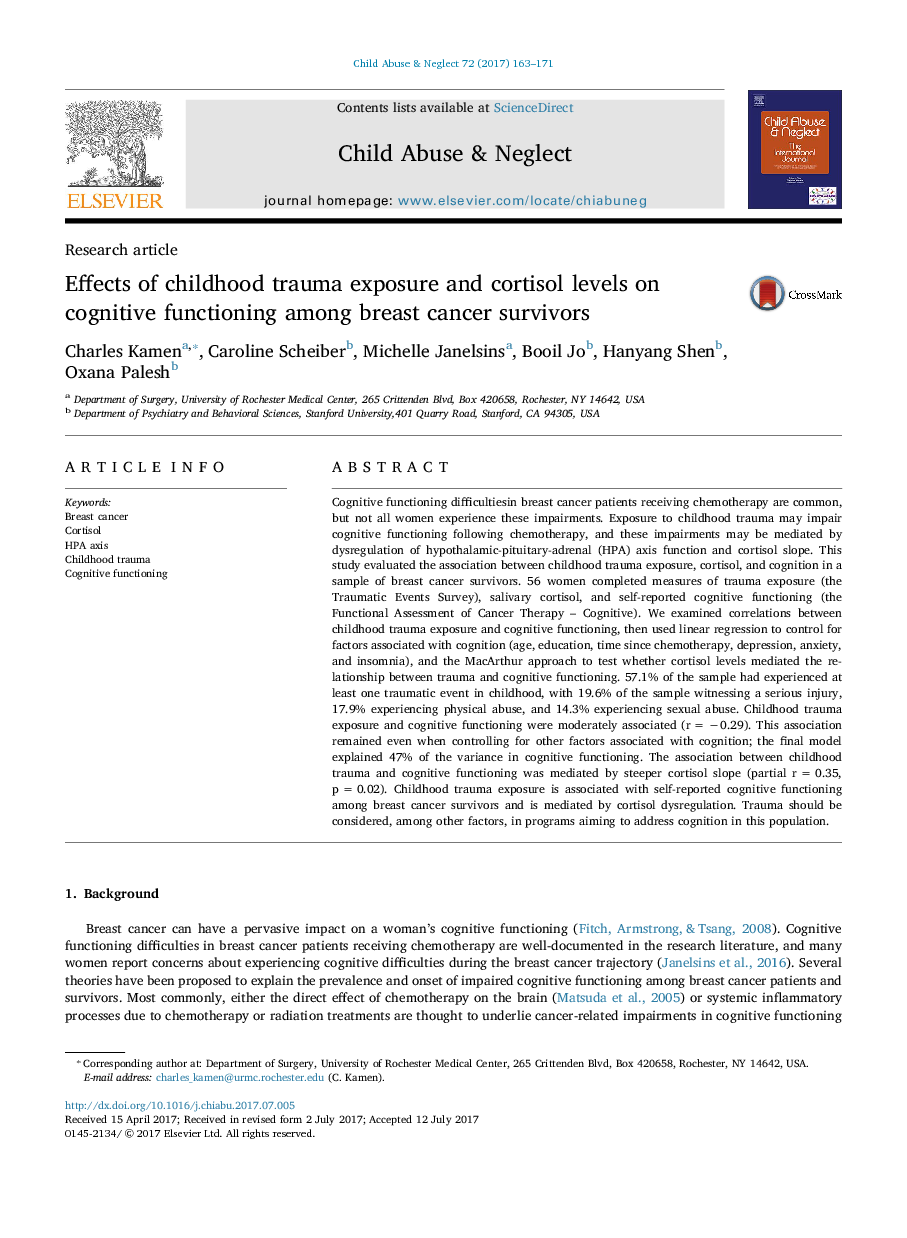ترجمه فارسی عنوان مقاله
اثرات در معرض آسیب های دوران کودکی و سطح کورتیزول بر عملکرد شناختی در بازماندگان سرطان پستان
عنوان انگلیسی
Effects of childhood trauma exposure and cortisol levels on cognitive functioning among breast cancer survivors
| کد مقاله | سال انتشار | تعداد صفحات مقاله انگلیسی |
|---|---|---|
| 120546 | 2017 | 9 صفحه PDF |
منبع

Publisher : Elsevier - Science Direct (الزویر - ساینس دایرکت)
Journal : Child Abuse & Neglect, Volume 72, October 2017, Pages 163-171

